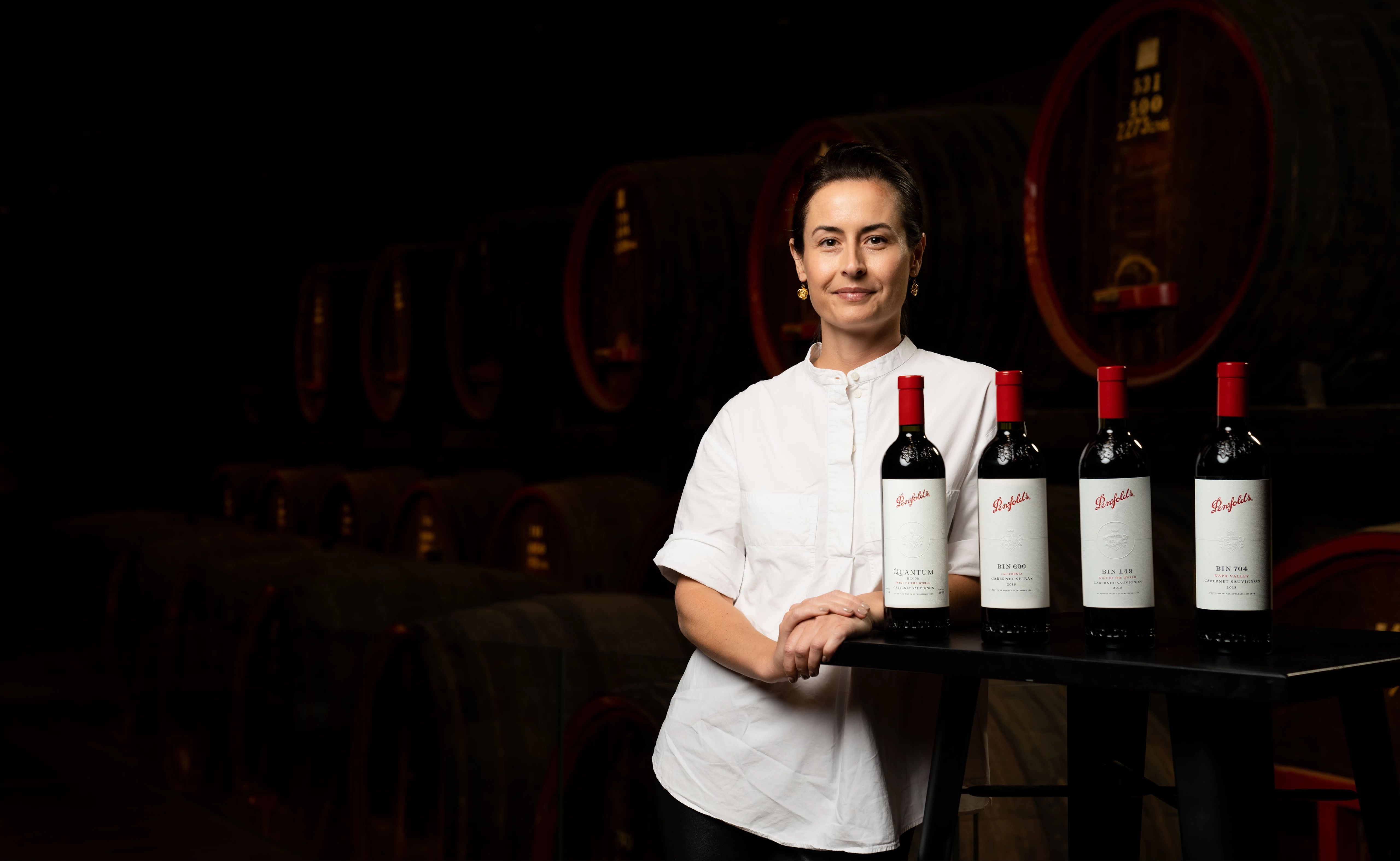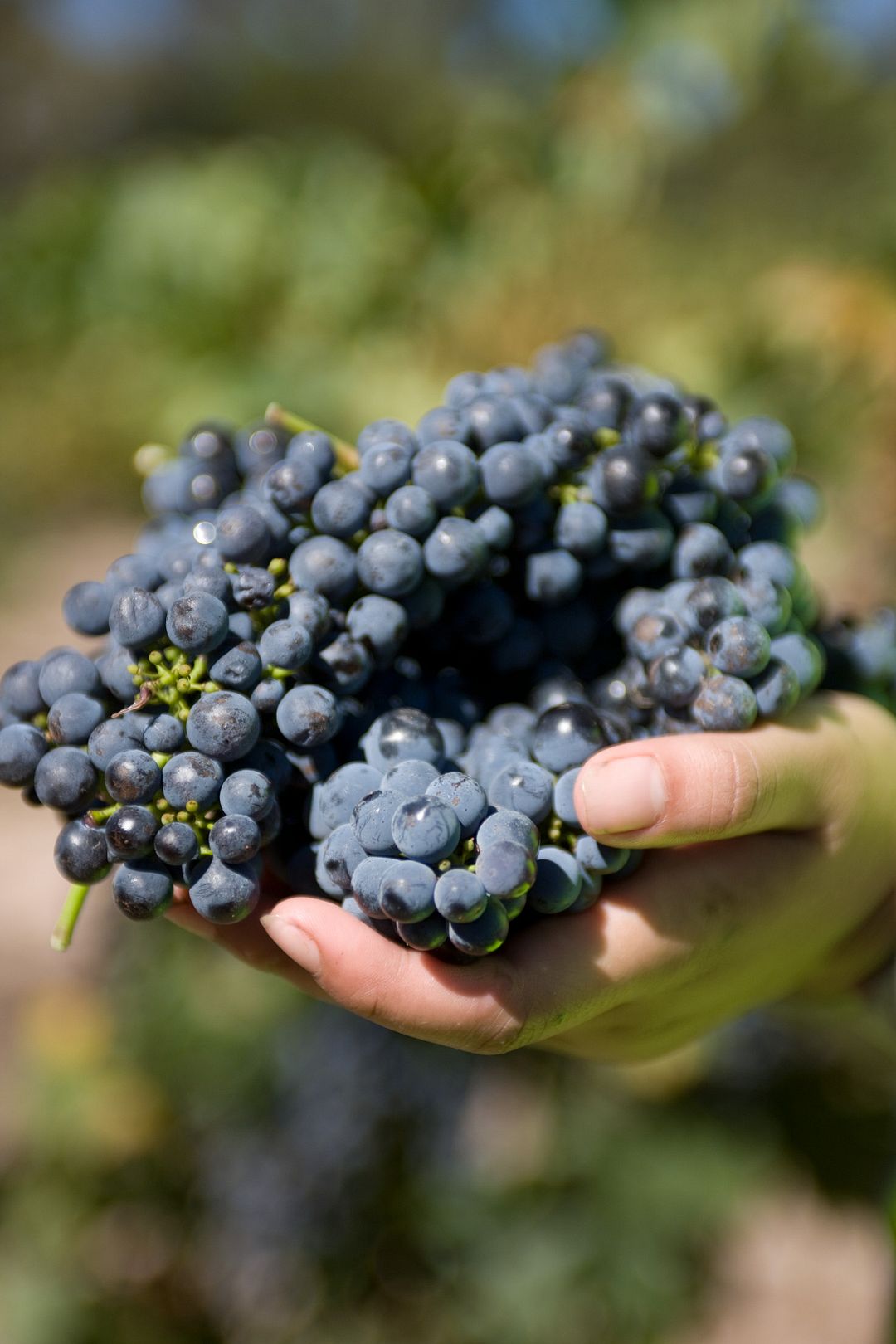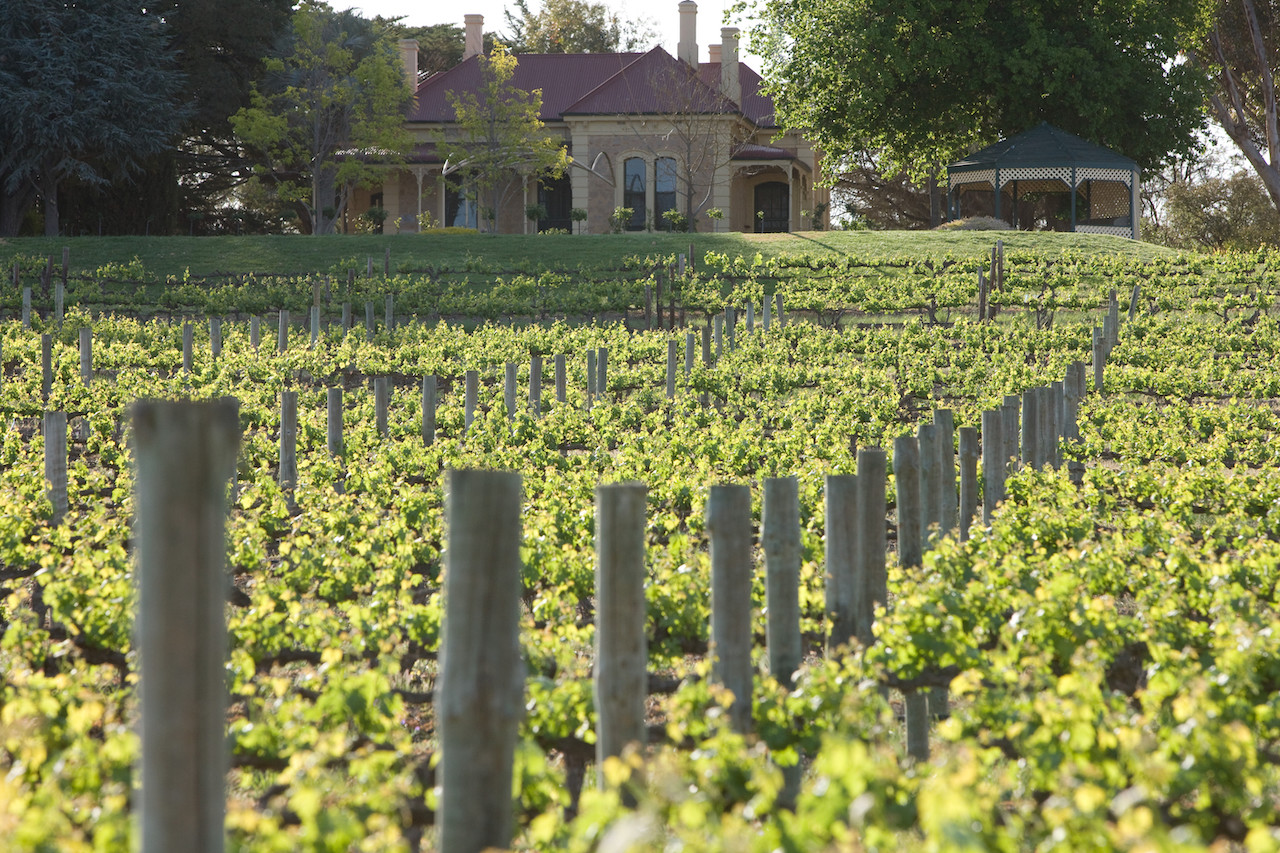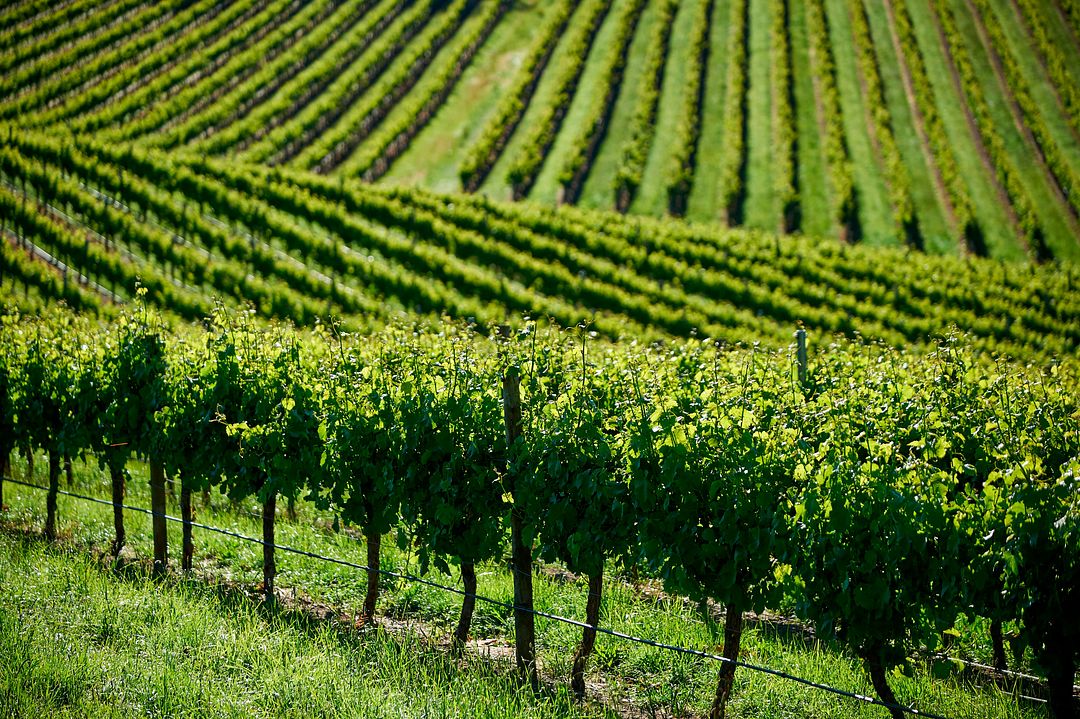Penfolds senior winemaker, Steph Dutton, shares her views on technology, sustainability, future proofing in winemaking, and transferring knowledge to the next generation of winemakers. Steph joined Penfolds in 2007 whilst completing her Masters of Oenology, and took on the role of senior winemaker in 2017. Today her winemaking responsibilities span between South Australia and California where Penfolds operates their vineyards. She has also worked with her winemaking team in Bordeaux and China (early trial work). Find out how this multi-regional brand is actively future proofing the wine industry for the next generation:

How has technology helped in winemaking?
There’s this lovely quote, by one of my predecessors – Ray Beckwith – who worked for Penfolds for a long time and officially retired back in the 1970s. He was the oenologist who supported Max Schubert [Penfold’s former winemaker] when some of the early vintages of Grange and the Penfolds portfolio were being born.
He said that they took care of the science so that we can take care of the art. And in many ways that is true. I’m so grateful for the science that he gave us, but at the same time, it doesn’t stop there. The science continues and the developments get stronger, more savvy and more insightful.
The art continues to bubble away, but we’re looking at how technology has changed the industry in recent times. Winemaking and cellar work is very labour intensive. And we have seen more mechanisation and robotics being introduced in the winery. They don’t change the style or quality (unless increasing it), but allow you to get the work done with more ease. At the winery, we have a barrel line that is robotic, which was created by our in-house engineering team. We have also just unloaded nine automatic guided vehicles, which are like robotic forklifts in the barrel cellar.
Technology should make life easier, and free up winemakers to spend more time to focus on wine tastings. In the vineyards, whether it’s satellite imaging or moisture mapping, drones have been able to help us do the work [efficiently]. And we also have autonomous vehicles working in the vineyard which are also better for the environment. That’s something that we have introduced in California.

Does AI have a role to play in winemaking?
We’re exploring AI. What is really interesting though, is that the human palate is still capable of detecting so much more. I think we’ve got to work out how to use AI to support us. But at the moment, it’s certainly not in position to take over from our roles. And the human palate has been proven to be far more sensitive than any analytical equipment out there. So we know that we’re doing something right. And I think we use the numbers to support us, but it’s still us making the decisions. Will that be forever? I don’t know.
I think at the moment AI is probably going to be more of a planning tool rather than a sensory tool. So for example, we have many barrels in our cellar. And trying to work out which wine should be going in which barrels, when they should be emptied, when they should be filled and at what time etc. I think we could start to have AI support us on some of that logistical management.
Why is human craft important?
You look at luxury sectors in any industry – collectors and consumers want to pay for the human craft. That’s important to our customers. I think there’s the wine industry, and there’s the fine wine industry. And the two should be looked at very differently. The fine wine industry has this very firm commitment to collectability, ageability, and craftsmanship, and making sure that we tell the story behind the craft as well. At the moment, long apprenticeships at Penfolds and that generational passing of winemaking information knowledge, I think it’s something that collectors are happy to pay for.
After 34 years at Penfolds, Peter Gago our chief winemaker has a lot of knowledge to give. When you look at our predecessors, you know that they have transferred their knowledge properly to Peter. He does the same in turn with the rest of our team. And we will continue to do so with the next generation of winemakers.
When people ask me, what does success look like? And whilst there [are] many parts to that answer, part of what success looks like for me is the next generation of winemakers wanting to work for us. That to me, says that we’re doing something right.

Should we really be concerned about climate change?
I think we would be crazy to ignore it in our industry. You have to be open minded enough to know what it is that you want to do, meaning actionable steps to make sure that the industry is future-proof. And until you’re willing to ask those questions and take it on, I think you’re going to be stuck in the past.
In winemaking and viticulture, we’re capable of operating in warm conditions and in cool conditions. Where it’s very hard to operate is in the extremes – extreme heat or drought, or floods, or wet cold years. For me, what’s probably the biggest concern is when those extremes are what Mother Nature is giving you – what can we be doing as an industry to mitigate some of that risk and make sure that the quality that we’re putting into bottle never wavers?
It was never a deliberate move for Penfolds to be sourcing wines multi-regionally, or even in multiple countries. It sort of all happened organically. Our winemaking past was very much fortified wines, which are based on blending. The art of blending varietals, and in the case of fortified, even the art of blending vintages. I think when the Australian wine industry and Penfolds entered its table wine era, that very much remained part of our craft.
So you can have for example, a vintage where Barossa Valley doesn’t perform particularly well because it’s too hot or dry, but Coonawarra down south really thrives. You can also have the reverse. I often describe it as the insurance policy that we didn’t know that we needed to have. But it’s always been a part of our DNA. And for that I’m very grateful that it’s been a part of our philosophy. I think that multi-regional sourcing gives us the ability to create wines that are consistent in style and quality. If we’re doing our job correctly, I’d like to think that vintage personality is still coming through.

I think that has helped us navigate climate change. We’ve also made a few deliberate moves. For example, sourcing in Tasmania for our Chardonnay portfolio. Tasmania was never originally part of our story. But in 2006, we went to Tasmania for the very first time for Yattarna, and we’ve never looked back. And as you know, Tasmania is as far south as it gets in Australia. Between Tasmania and Antarctica is nothing except for the Antarctic Ocean. Again, multi-regional sourcing has proven to work for us.
You don’t want to be walking away from an already established viticulture community. But I think we’re asking ourselves – how can we make tweaks to those viticulture communities or regions to make sure that we’re future-proofing without abandoning them? Sometimes that might be the varieties that your planting, or clones that you’re selecting, or water preservation.
What’s good about the wine industry is that the spectrum and styles are so large. What that means is each of them often requires different growing conditions. And this is great because it means that viticultural communities can exist in many different parts of the world. And as I said, future-proofing those regions – by looking at the clones that are going to be more consistent performers in dry years or things like that – helps us along the way.
We have just introduced responsibility and sustainable initiatives under a [grant] programme called Penfolds Evermore. Evermore has multiple pillars – but first of all, it looks at how can we future proof winemaking and make sure that the next generation of winemakers are in a better position than the current. How can we act responsibly in the communities that we are farming or have viticultural operations in. As part of Evermore, we are pledging AU$1 million in grants over the next four years to communities that we operate in – in Australia, France, the US and China. And I think looking at sustainability as a very holistic approach and bettering the industry is how we have wanted to do it. Years ago when we were introducing some sustainability measures, we had some growers saying: why do we need to do this? I remember saying, this is what is expected globally. These are the standards our customers demand. So if you don’t, we will not be relevant as an industry and I think the Evermore programme wraps up all of the pillars in this nice little red bow at the top for us – that is environmental and community focused.
____
Text by: Amy Van | Photos: Penfolds
